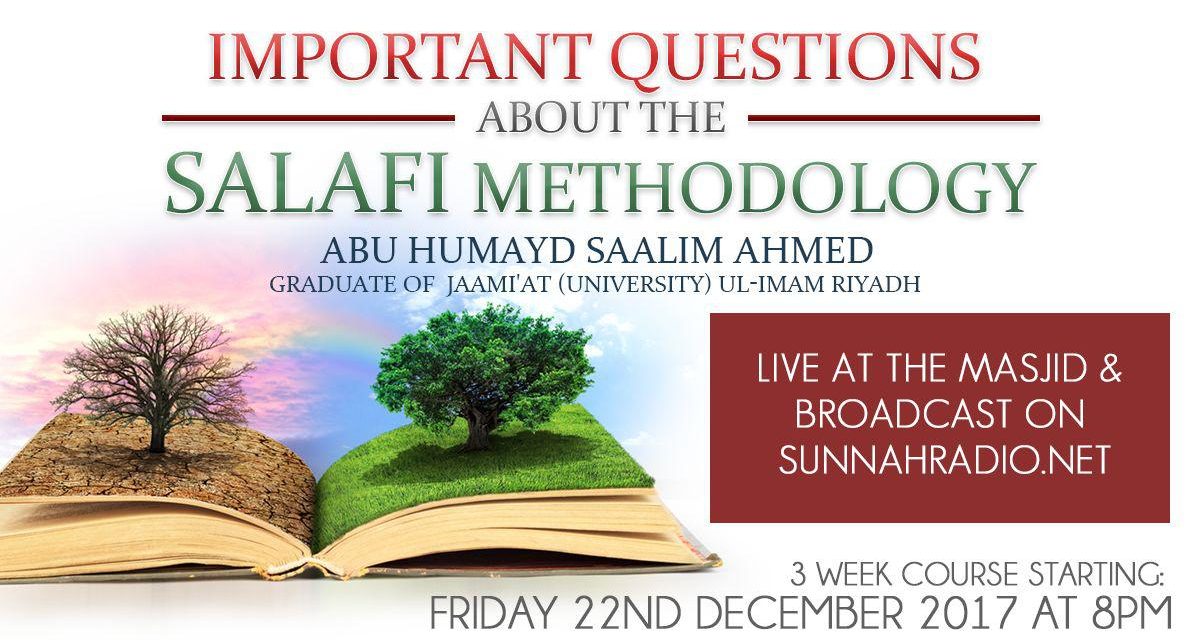Ustaadh Abu Humayd begins by recapping the previous lesson and the impermissibility of differing into different groups and parties.
Although it is impermissible in Islam to differ and split into groups, Allaah willed and allowed the splitting of the Muslims.
وَلَوْ شَاءَ رَبُّكَ لَجَعَلَ النَّاسَ أُمَّةً وَاحِدَةً ۖ وَلَا يَزَالُونَ مُخْتَلِفِينَ
‘And if your Lord had so willed, He could surely have made mankind one Ummah [nation or community (following one religion only i.e. Islam)], but they will not cease to disagree’. Sura Hud, Ayah 118.
By way of this, we understand that the splitting of the ummah is necessary.
We see in the shari’ah, drinking alcohol is haram and impermissible, but still takes place, so it is the same ruling with regards to the differing within the ummah.
Shaykh Islam Ibn Taymiyah mentions that the reasoning for the Messenger (Sallallaahu Alayhi Wa Sallam) informing the ummah of the splitting into 73 sects, is that in this is a warning.
Whilst some may choose to reject that differing occurs and aim to increase their numbers, due to political reasons, desiring power and strengths in the land, we must cling to the fact that safety is in sticking to the saved sect, and that sect is the path of the Messenger of Allaah (Sallallaahu Alayhi Wa Sallam) and his companions. The other 72 sects are in the hellfire, as the Messenger of Allaah (Sallallaahu Alayhi Wa Sallam) informed us.
This hadith regarding the 72 sects in the hellfire teaches us a number of affairs. Firstly, to free oneself from them.
Allaah says in the Quran:
إِنَّ الَّذِينَ فَرَّقُوا دِينَهُمْ وَكَانُوا شِيَعًا لَسْتَ مِنْهُمْ فِي شَيْءٍ ۚ إِنَّمَا أَمْرُهُمْ إِلَى اللَّهِ ثُمَّ يُنَبِّئُهُمْ بِمَا كَانُوا يَفْعَلُونَ
Verily, those who divide their religion and break up into sects (all kinds of religious sects), you (O Muhammad SAW) have no concern in them in the least. Their affair is only with Allah, Who then will tell them what they used to do. (Sura Al-An’am, Ayah 159)
In this verse is an evidence for freeing oneself from the 72 misguided sects.
Secondly, we warn against their evil and do not aid and support them. This is shown in a hadeeth wherein The Messenger of Allaah (Sallallaahu Alayhi Wa Sallam) said: “When the Qadariyah fall ill, do not visit them, and when the die, do not attend their funeral”.
Likewise, as occurs in Sahih Al Bukhari, the Prophet Sallallaahu Alayhi Wa sallam said that if he were to reach the Khawarij he would slaughter them with the slaughtering of ‘Aad (a previous nation whom Allaah wiped from the face of the earth).
إِلَّا الَّذِينَ آمَنُوا وَعَمِلُوا الصَّالِحَاتِ وَتَوَاصَوْا بِالْحَقِّ وَتَوَاصَوْا بِالصَّبْرِ
Except those who believe (in Islamic Monotheism) and do righteous good deeds, and recommend one another to the truth (i.e. order one another to perform all kinds of good deeds (Al-Ma’ruf) which Allah has ordained, and abstain from all kinds of sins and evil deeds (Al-Munkar) which Allah has forbidden), and recommend one another to patience (for the sufferings, harms, and injuries which one may encounter in Allah’s Cause during preaching His religion of Islamic Monotheism or Jihad, etc.). (Sura Al-Asr, Ayah 3)
Shaykh Zayd Al Madkhali said this ayah means:
إلا الذين علموا
‘Except those who know’, showing that in order to believe, we must learn.
Ustadh Abu Humayd discusses the chapter titles of Sahih Al Bukhari and how they are connected, highlighting the tremendous fiqh (understanding) that Imam Al Bukhari had. The second to last chapter is Kitaab Al I’tisam (Book of Clinging to the Quran and the Sunnah) – from the fiqh of this chapter is that he brings this at the end of Sahih Al Bukhari, after the remainder of the affairs have been brought to say that once you have learnt the kitaab and sunnah, it is upon you to cling to it. Likewise, that the Ummah will not accept Bid’ah in the religion.
We strongly advise that you listen to the audio for the full benefits from this lecture, particularly for the benefits related to the fiqh of the chapter titles in Sahih Al Bukhari.








